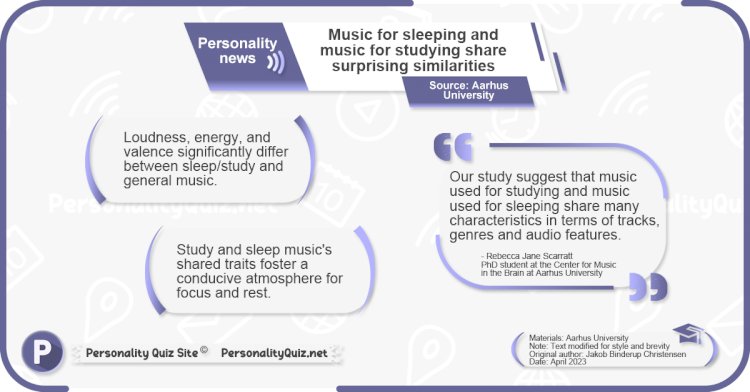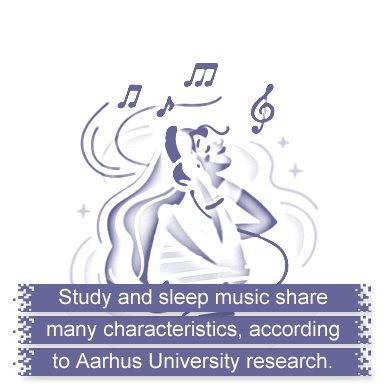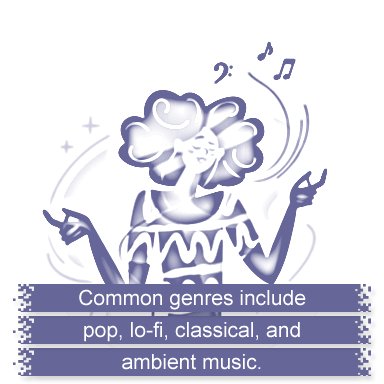Music for studying and sleeping share surprising similarities
Discover how study and sleep music share characteristics, fostering focus and relaxation, based on recent Aarhus University research.

Summary
Music used for studying and sleeping surprisingly share many characteristics, according to a research study by Aarhus University. The calming effects of music with slow tempo and repetitive patterns found in genres such as pop, lo-fi, classical, and ambient music, create a conducive environment for both studying and sleeping. The research also highlights how the study of music usage can shed light on our understanding of cognitive and emotional states.

Introduction
Ever wondered about the types of music you choose for studying or sleeping? Aarhus University's recent study suggests that the music chosen for these activities has more in common than previously thought. The research, involving both qualitative and quantitative analysis, focused on Spotify playlists seemingly used for studying or sleep.
Main points
- The researchers discovered that study and sleep music share many characteristics, with common genres being pop, lo-fi, classical, and ambient music. These types of music typically have a slow tempo and repetitive patterns, contributing to their calming and stress-reducing effects.
- Significant differences were found between general music datasets and those used for studying and sleeping, especially in terms of loudness, energy, and valence - emotional tone or mood of the music.
- This pioneering research is expected to lead to a better understanding of how music affects our cognitive and emotional states and may shed light on how music can enhance our daily lives.

Conclusion
While more research is necessary, this study provides a foundation for exploring the relationship between music and cognitive processes. This unique connection between music used for studying and sleeping could open up new insights into the use and effects of music in our daily lives. The study underscores the potential of music to create pleasant, non-disturbing atmospheres conducive for focused tasks and relaxation.
Source and credits
Materials: Aarhus University
Original author: Jakob Binderup Christensen
Note: text modified for style and brevity
Date: April 2023
Research reference
Scientific Reports, 2023; 13 (1)

 vneo
vneo 











